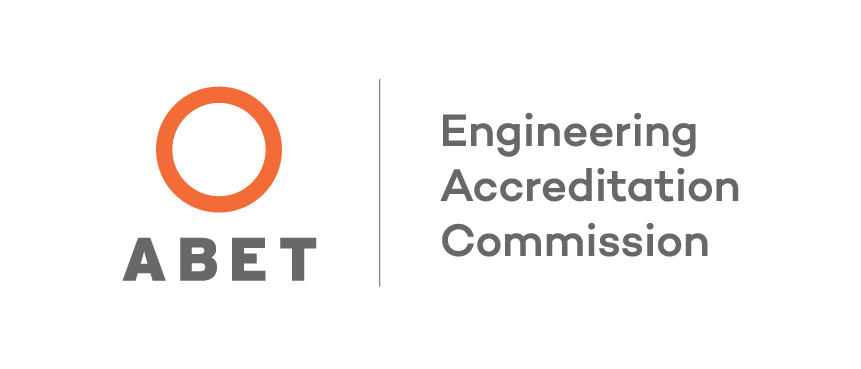Computer Engineering
BS, BS/MS
Major in computer engineering
Computer engineers apply electrical engineering techniques and computer science concepts to develop dependable, cost-effective hardware and software systems and components.
Computer engineering is a rapidly growing discipline and is also one of the highest-paid engineering fields. Specialty areas within computer engineering include:
- computer architecture
- computer networks
- cybersecurity
- embedded systems
- mobile devices
- wireless sensors
- Internet of Things
As a computer engineering major, you'll be prepared to meet the changing high-technology needs of industry and to continue with graduate studies. Our program prepares you for this evolving field by providing a strong background in science, mathematics, and engineering.
The bachelor's degree program in computer engineering also offers a concentration in cybersecurity: the application of measures to protect computers and computer systems from unauthorized access and attack.
What do computer engineers do?
Computer engineers develop a broad range of technologies, including microprocessors, circuit boards, software applications, robotics, and memory chips.
Computer engineers work in a variety of fields such as aerospace, automotive, biomedical, communications, consumer electronics, medicine, power, and space. As a computer engineer, you may work as a designer, researcher, scientist, educator, consultant, entrepreneur, executive, public official, or in the military.
Our program graduates students who excel in applications engineering and team leadership. Your courses will include programming, circuits, digital design, electronics, operating systems, algorithms, and computer networks. You can also choose from technical electives such as integrated circuits, computer architecture, wireless sensor networks, wireless communications, multimedia communications, database systems, network security, and dependable computing.
For the BS in computer engineering, you'll complete 75 credits in general engineering and computer and electrical engineering courses with 122 credits overall. During your senior year, you will complete a team design project that provides real-world experience defined by current industry needs.
Concentration in cybersecurity: the application of measures to protect computers and computer systems from unauthorized access and attack. Learn more
Dual bachelor's degrees in electrical & computer engineering: Prepare to meet a broad range of challenges in these ever-changing high-tech fields.
A minor in computer engineering provides the opportunity to specialize in areas such as computer architecture, computer networks, database systems, and digital circuits. For the minor, you'll complete at least 23.5 credits.
College of Engineering alumni starting salary range: $0,0 - $0,0
NACE AY 2022 Data Collection of Undergraduate Alumni
- Capstone projects: most senior engineering students work in small teams on real-world, industry-specific challenges that demand analysis, proposals, prototypes, and solutions.
- Community: join organizations such as the Institute of Electrical and Electronics Engineers (IEEE), Association for Computing Machinery, the Electrical and Computer Engineers National Honor Society, the Society of Women Engineers, the National Society of Black Engineers, and Engineers Without Borders.
- Experience: participate in co-op and internship programs to gain valuable experience with regional industries, often while also earning money for college.
- New initiatives: collaborate, create, and explore the Center for Scientific Computing and Visualization Research.
International (F-1) students who receive science, technology, engineering, and mathematics (STEM) degrees may be eligible to apply for a 24-month extension of their post-completion optional practical training (OPT). To learn about the eligibility criteria and detailed steps to apply, please review the International Student & Scholar Center (ISSC) OPT page and USCIS resources. F-1 students must consult with the ISSC to apply for STEM OPT.
UMass Dartmouth offers a great transfer experience for students who:
- have graduated from an accredited community college, or
- have earned college credits from an accredited college or university
- Accelerated BS/MS Program: This program enables qualified BS degree students to complete both the BS and the MS degrees in 5 years.
- MS in Electrical Engineering: Expand your career options with a master's degree in computer engineering.
- PhD in Electrical Engineering: Our doctoral program in electrical engineering also offers an option in computer engineering.
- Graduate Certificates: The department also offers certificate programs for working professionals.


/prod01/production-cdn-pxl/media/umassdartmouth/college-of-engineering/ece-dept/05.ANASTASIA-GROSCH-01-1920X1080-1200X675.jpg?text=fallback512)
/prod01/production-cdn-pxl/media/umassdartmouth/profiles/engineering/180206-fiondella-lance-raa-002.jpg?text=fallback320)
/prod01/production-cdn-pxl/media/umassdartmouth/profiles/engineering/electrical-amp-computer/sezer.jpg?text=fallback320)
/prod01/production-cdn-pxl/media/umassdartmouth/profiles/engineering/electrical-amp-computer/Hong-Liu.jpg?text=fallback320)
/prod01/production-cdn-pxl/media/umassdartmouth/profiles/engineering/220517-08.HONGGANG-WANG.jpg?text=fallback320)
/prod01/production-cdn-pxl/media/umassdartmouth/profiles/engineering/electrical-amp-computer/231012-LIUDONG-XING-02.jpg?text=fallback320)
/prod01/production-cdn-pxl/media/umassdartmouth/programs/featurebox-honors.jpg?text=fallback512)
/prod01/production-cdn-pxl/media/umassdartmouth/programs/featurebox-study-abroad.jpg?text=fallback512)
/prod01/production-cdn-pxl/media/umassdartmouth/programs/featurebox-OUR.jpg?text=fallback512)
/prod01/production-cdn-pxl/media/umassdartmouth/programs/featurebox-university-studies.jpg?text=fallback512)